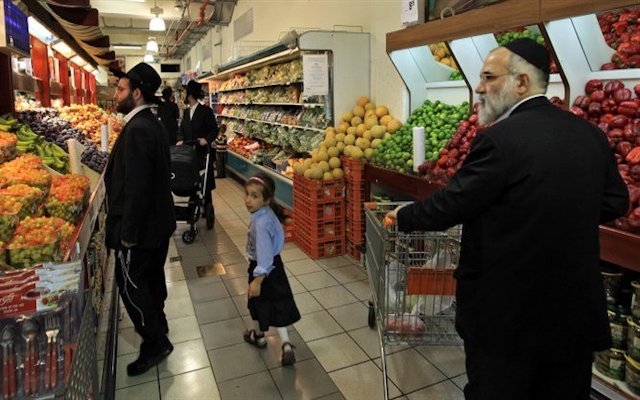A recent ruling by Israel's High Court of Justice has catalyzed a contentious debate that could potentially fracture Israel's already fragile ruling coalition. This controversy is further exacerbated by the ultra-Orthodox factions whose political red lines are closely tied to community benefits—benefits often pledged by Prime Minister Netanyahu as part of coalition agreements. The crux of the issue lies in the real problem of food insecurity, a problem which the now-suspended bill did not adequately address. Instead, the bill seemed tailored to benefit a specific demographic at the expense of others.
The Genesis of the Voucher Scheme: MK Aryeh Deri
At the forefront of this disputed voucher program is MK Aryeh Deri, the leader of the Shas Party. Deri is a divisive figure with a checkered political past, including a 1999 conviction for bribery, fraud, and breach of trust that resulted in a three-year prison sentence. Moreover, a 2022 plea bargain resulted in his disqualification from ministerial positions in the Interior and Health sectors. Yet, undeterred by these challenges, Deri has marketed this food voucher program as a linchpin of his policy agenda. He proposes a monthly disbursement of NIS 2,400 to large families.
Most Holocaust survivors that are food insecure won't qualify for the food stamps program promoted by Aryeh Deri. Most families that qualify are from the Haredi Sector of the population
— Ari Krauss (@AriKrauss) August 23, 2023
The government hands out gifts almost exclusivly based on how much you have Bibi by the balls https://t.co/pVwSZWC5jv
While the legislation doesn't overtly discriminate in favor of Haredi families, the criteria for eligibility make it virtually inaccessible for non-Orthodox households. Remarkably, the bill is conspicuously silent on the plight of single-parent households and those near the poverty line who don’t meet the bill's family size criterion—a demographic that arguably outnumbers those who could meet the stringent requirements.
The Unsettling Landscape of Food Insecurity in Israel
According to data from Jerusalem's Taub Center for Social Policy Studies, about 16% of Israeli households grapple with food insecurity, and a staggering 21% live beneath the poverty line. These troubling figures were the focus of the Taub Center's study on Israel’s main strategy against food insecurity during the COVID-19 pandemic: food vouchers. The study uncovers glaring imbalances in aid distribution, revealing a disproportionate number of ultra-Orthodox families receiving aid while leaving Arab and Bedouin communities in a perilous deficit. These discrepancies suggest that cronyism plays a significant role in policy formulation.
12,000 Holocaust Survivors Excluded From ultra-Orthodox Minister's Food-voucher Plan - Israel News - https://t.co/UEor5PpQS2 https://t.co/xz0EFoz3OC
— Please Join #Mastodon! Mstdn.Social/@JClickbaited (@JClickbaited) August 13, 2023
A Deeper Dive into Political Cronyism
Cronyism—favoritism shown by those in power to friends and allies—exists globally, particularly in developing nations. In Israel, this phenomenon manifests in the preferential allocation of resources to specific communities, aimed at consolidating political support. Locations like Bnei Brak, Modi’in Ilit, and Beit Shemesh, which are dominated by Haredi populations, serve as case studies for the potential misuse of such policies.
Proactive Measures to Combat Food Insecurity
Israel has implemented several initiatives to counter food insecurity, including the National Council for Food Security and programs managed by the Welfare and Social Affairs Ministry. Despite their outreach to around 354,000 families during the pandemic, questions regarding their efficacy and equitable distribution linger.
In haredi cities, the share of families receiving vouchers was greater than the number of families living below the poverty line; in Arab, and Bedouin localities in particular, the opposite was the case. 🍽️ #Discrimination | #Poverty | #Israel https://t.co/vjaLHYVuWx
— The Jerusalem Post (@Jerusalem_Post) September 13, 2023
The Taub Center recommends a dual approach: continuous financial aid coupled with specialized support. Should the voucher program extend into 2024, a comprehensive revision of its eligibility criteria is non-negotiable.
The Center proposes three alternative strategies:
Overhaul the existing food voucher program, prioritizing long-term sustainability.
Widen the Food Security Initiative's scope.
Bolster the social security net for vulnerable demographics.
Each strategy should define clear goals, targeted beneficiaries, and implementation mechanisms.
Yad Ezra V'Shulamit distributes over 12,000 weekly food baskets and food vouchers across 91 cities across Israel. pic.twitter.com/j0OkU2r9b2
— Yad Ezra V'Shulamit (@yadezra_net) June 1, 2023
Conclusion
At this critical juncture, Israel's food voucher program is fraught with challenges stemming from social inequities and political cronyism. As the government endeavors to earnestly address food insecurity and poverty, it is crucial to develop strategies that are impartial and transparent. Only through a comprehensive reevaluation can this program serve as an effective tool in Israel's social welfare arsenal.


